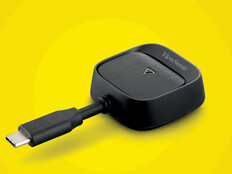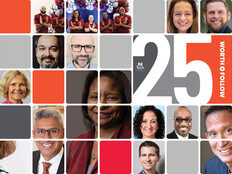E-Reader Access, Going Green & Social Media in College Admissions
E-Reader Access for All
With e-reader adoption increasing among higher education institutions, the departments of Justice and Education recently issued a “Dear Colleague” letter reminding colleges of the need to provide technology that is accessible to students with disabilities. The letter was in response to complaints from students at some colleges and universities where e-readers were in use but had not been modified to allow those who are blind or have other visual disabilities to use them. Under the Americans with Disabilities Act of 1990 and Section 504 of the Rehabilitation Act of 1973, institutions are barred from requiring the use of technology that is inaccessible to individuals with disabilities, unless the institution provides accommodations or modifications that help disabled individuals in an equally effective manner.
Source: U.S. Department of Education
Going Green While in the Red
As higher education institutions face severe budget problems, IT-driven green initiatives are not falling by the wayside. An April EDUCAUSE report says that many green programs are continuing to receive strong support. The top three green initiatives (according to 261 CIO respondents to an EDUCAUSE survey) are recycling e-waste, supported by 88 percent of respondents; minimizing growth in electrical energy use, supported by 84 percent; and purchasing Energy Star products, supported by 71 percent.
Source: “Powering Down: Green IT in Higher Education,” EDUCAUSE Center for Applied Research
100 Gig-E Is the New 10 Gig-E
Just when you think you've got a handle on 10 gigabits-per-second Ethernet, along comes 100 Gig-E. The IEEE recently ratified a new standard, IEEE 802.3ba 40Gbps and 100Gbps Ethernet, which will govern 40Gbps and 100Gbps Ethernet operations. This new standard addresses the rapid adoption of bandwidth-intensive technologies and applications, such as streaming video, social networking and converged network services – all pertinent to college campuses. The ratification will help pave the way for super networks that can easily share advanced applications and provide new research opportunities for higher education.
Source: Institute of Electrical and Electronics Engineers
Admissions: Social Media Matures
A recent University of Massachusetts Center for Marketing Research study says that social media is playing an increasingly important role in college admissions. The study, to date the most comprehensive look at U.S. higher education and its use of social media in admissions, reveals that in 2009, 95 percent of college admissions offices used some form of social media, up from 85 percent in 2008. Social media tools such as Twitter and Facebook were the most popular sites, with 87 percent using them, up from 61 percent in 2008. Finally, a majority (51 percent) of colleges and universities now have a blog devoted to admissions for their school.
Source: “Social Media and College Admissions: Higher-Ed Beats Business in Adoption of New Tools for Third Year,” University of Massachusetts Dartmouth Center for Marketing Research; 2009 study based on 478 interviews









